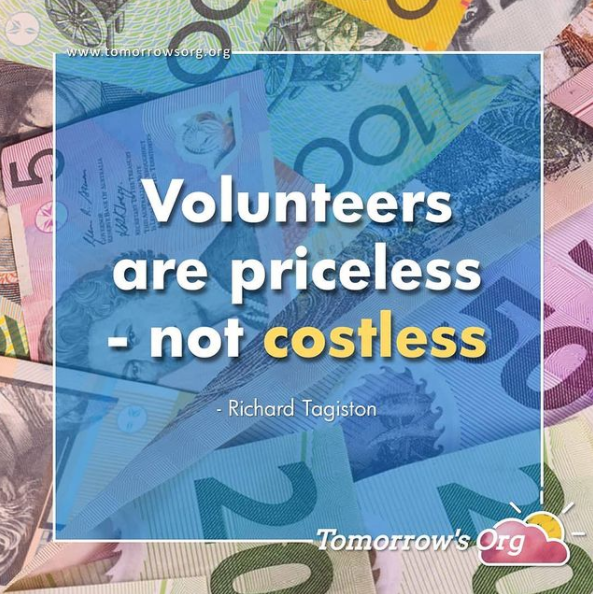Managers blog - Dunedin and Waitaki December

Volunteers are priceless, not costless.
As the end of the year fast approaches, Volunteer South has been confronted by a number of lessons. Lockdown, global pandemics and hand-washing routines aside; this year has been a game changer for volunteer advocacy and volunteer programmes. Aotearoa New Zealand has relied heavily on volunteers for our social and community support for decades, but this year has meant that volunteers are far more visible and far more valuable than ever before. There is a sense that the shift in our work has showcased what can be achieved with volunteers, and what still needs paid support.
However, there is a catch to this reliance on volunteers. The voluntary sector remains chronically underfunded and predominately, volunteer programmes in not-for-profit organisations account for less staff FTE, less budget and less marketing support than other programmes. Yet, you are unlikely to come across a not-for-profit that involves volunteers that doesn't state that it couldn't do the work that it does without it's volunteers.
Tomorrows Org wrote a brilliant quote last month, "Volunteers are priceless, not costless" and never before has this been more on point (see Instagram post here). Volunteer Coordinators or managers are often part-time, if they even have a paid role. Often volunteer coordination comes as a part of another role in the organisation, and quite often, there is little to no training or professional development offered for people essentially working in people management. The idea that volunteers costs are lower bears no resemblance to the work that they are often asked to do. One only needs to look at our emergency services to see that without volunteers, many of our communities would be less able to respond should the worst occur.
In the last four months, Volunteer South has noticed a significant decrease in the amount of people aged 60 and over who are applying for volunteer roles. The person most likely to volunteer in the Southern region is a woman aged between 30 and 60 who is in full-time employment. If this person is the person most likely to volunteer, then volunteer roles need a shift and a refocus. Walking the line between what is needed for the community and getting a volunteer to support the work is a fine one, and one that needs careful management. But with only 7% of the people currently applying for roles in the Southern region being over the age of 60, now is the time to change before communities lose the support it has relied on for so long.
Volunteer South offers mentorship and support to all not-for-profits, whether they are members or not and are strong advocates for safe and robust volunteer programmes that enables the resilience of the community. If you would like to learn more about how we can support you, check out this link here about our mentorship service. We are more than happy to support with any and all volunteer programme needs including the creation of new volunteer programmes to building more sustainable ones; from policies to procedures; from working with boards to dealing with difficult volunteers. The support is impartial, confidential and geared towards sustainability and longevity.
In the meantime however, we all have a break to look forward to, where we can put 2020 behind us and look forward to a refreshed and revitalised 2021. Here at Volunteer South, we hope that you have a great time no matter what you do, and cheers for being a part of our 2020!
Volunteer South Manager - Dunedin & Waitaki
Leisa de Klerk

 Dunedin
Dunedin